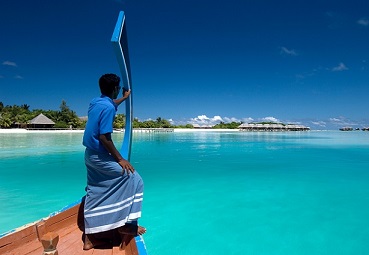
MCLEAN, VA.—Hilton today announced it will cut its environmental footprint in half and double its social impact investment by 2030. With this commitment, Hilton will become the first major hotel company to institute science-based targets to reduce carbon emissions and send zero soap to landfill.
The company will also double the amount it spends with local and minority-owned suppliers and double its investment in programs to help women and youth around the world.
These goals are part of Hilton’s Travel with Purpose corporate responsibility strategy to further the United Nation’s 2030 Sustainable Development Agenda.
New consumer research reaffirms Hilton’s corporate responsibility strategy. According to a survey of 72,000 Hilton guests, social, environmental and ethical considerations are central to their buying preferences, especially those younger than 25 years old. The six-day survey was conducted in May 2018 and asked travelers if they research a hotel company’s environmental and social efforts. It discovered:
- Thirty-three percent actively seek this information before booking—of those, 60 percent conduct research even if the information is not easily accessible; 44 percent under the age of 25 actively seek this information; 36 percent of leisure travelers actively seek this information, compared to 29 percent of business travelers.
- Female travelers (39 percent) are more likely to actively seek this information before booking than male travelers (29 percent);
- Guests staying in Central/South America (46 percent), the Middle East/Africa (45 percent), Asia Pacific (41 percent) and mainland Europe (35 percent) are more likely to seek this information before booking.
“For nearly 100 years, Hilton has been driven by our mission to have a positive impact on the communities surrounding our hotels,” said Christopher J. Nassetta, President and CEO, Hilton, and Chairman, World Travel & Tourism Council. “In this Golden Age of Travel, we are taking a leadership role to ensure that the destinations where travelers work, relax, learn and explore are vibrant and resilient for generations of adventurers yet to come.”
Hilton Part of a Much Larger Effort
In April, Nassetta joined Patricia Espinosa, Executive Secretary of the UN Framework Convention on Climate Change, to engage travel and tourism industry leaders in a “common agenda” to take action on climate change, implement the Paris Climate Agreement and adopt science-based targets to reduce carbon emissions.
Hilton’s new 2030 Goals include the following environmental and social targets:
Cut Environmental Impact in Half to Help Protect the Planet
- Reduce carbon emissions by 61 percent, in line with the Paris Climate Agreement and approved by the Science Based Targets Initiative (SBTi);
- Reduce water consumption and produced waste by 50 percent;
- Remove plastic straws from managed properties;
- Sustainably source meat, poultry, produce, seafood and cotton; and
- Expand existing soap recycling program to all hotels and send zero soap to landfill.
Double Social Investment & Drive Positive Change in Communities
- Double the amount spent with local, small and minority-owned suppliers;
- Double investment in opportunity programs for women and youth, including partnering with local organizations and schools;
- Contribute 10 million volunteer hours through Team Member initiatives;
- Double monetary support for natural disaster relief efforts; and
- Advance human rights capabilities in Hilton’s value chain to eradicate forced labor and trafficking.
Hilton is already an environmental leader in the industry. Since 2008, the company has reduced carbon emissions and waste by 30 percent and energy and water consumption by 20 percent, saving more than $1 billion in operating efficiencies. LightStay, an award-winning performance measurement system calculates, analyzes and reports the environmental impact at each of Hilton’s more than 5,300 hotels. Hilton will use LightStay to track its goal of reducing carbon emissions by 61 percent across its portfolio by 2030.
“The World Tourism Organization commends Hilton’s focus on sustainability, which is in line with our overall commitment as the UN’s agency that is dedicated to promoting sustainable tourism for development worldwide,” said Zurab Pololikashvili, Secretary-General of the World Tourism Organization (UNWTO). “Hilton has been our partner in this endeavor, raising awareness among customers with examples of best practices for the hospitality industry.”
“Companies play an integral role in solving our climate crisis,” said Sheila Bonini, Senior Vice President, Private Sector Engagement, World Wildlife Fund. “By committing to significant intensity emissions reductions based on science, Hilton is setting in motion a plan that will have ripple effects across the hospitality industry while providing more sustainable options for travelers.
Click here to learn more about Travel with Purpose and the 2030 Goals.





